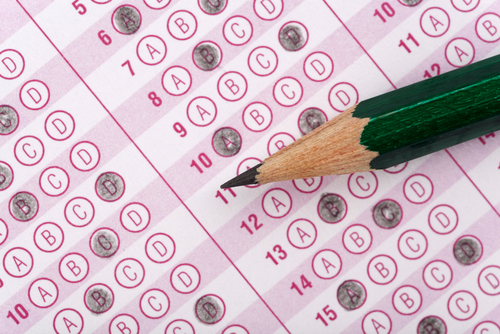NCBE extends current bar exam until 2028, NextGen test will include family law

Image from Shutterstock.
Editor’s Note: Looking for Judges ‘do not do double duty as sheriffs,’ 4th Circuit says in denying judicial immunity for home search? There was a link snafu in the Nov. 3 newsletter, our apologies.
Along with extending the offering of the current exam until February 2028, the National Conference of Bar Examiners announced that family law will be added back to the list of foundational concepts and principles on the NextGen bar exam starting that same year.
“The feedback we’re getting from jurists is that they see so many family law cases in their appellate dockets and in their trial courts that they see this emphasis as an important access-to-justice issue,” Judith Gundersen, president and CEO of the NCBE, told the ABA Journal.
In addition, lawyers entering solo practice or small law firms in rural communities often must handle family law cases early on in their careers, says Marilyn Wellington, the chief strategy and operations officer at the NCBE.
“Justices want to ensure those lawyers are prepared for that,” Wellington told the Journal.
In May, the NCBE had announced that family law and several other areas of law would also no longer be required knowledge but instead would included in “legal scenarios,” which will include research materials for test-takers. It followed the NCBE’s analysis of practice analysis data to make recommendations on what the NextGen bar exam should assess.
When the NextGen test debuts in 2026, family law will be tested on the performance-based items in the multistate exam, with candidates given resources to reference.
In 2028, it will become one of nine areas of foundational concepts and principles. Test-takers will be expected to know family law in depth and answer some questions “solely on recalled knowledge and understanding of the topic,” according to the NCBE content outline. Other questions might provide legal resources, according to the document.
“This is certainly a welcome development,” Naomi Cahn, professor at the University of Virginia School of Law and co-director of its Family Law Center, told the Journal. “It serves as recognition that more than 3 million family law cases are filed in state courts each year. Family law certainly comprises legal concepts that are fundamental to practicing law.”
The NCBE also announced the current bar exam and its components—the Multistate Bar Examination, the Multistate Essay Examination and the Multistate Performance Test—will remain available to jurisdictions through the February 2028 administration. This means that the current exam and the NextGen exam will be offered concurrently for two full years. Previously, plans were to sunset the current exam in July 2027.
“With the NCBE’s latest alteration to the upcoming NextGen bar exam rollout, state bar examiners now face a critical decision: Opt for the NextGen bar exam, or stick with state-specific assessments and employ a more cautious, ‘wait and see’ approach before adopting new standards,” said Amit Schlesinger, executive director of legal and government programs at test prep company Kaplan, in a statement. “No doubt, this latest change is going to result in some reshuffling of priorities at law schools, in terms of what is taught in the classroom and when.”
The NCBE has started developing a subject matter outline for family law, which will be added to the NextGen Content Outlines online, according to a news release.
The NCBE also announced in May that conflicts of laws, trusts and estates, and secured transactions would move from required knowledge to inclusion in the questions that offer research materials to test-takers.
NCBE officials had heard concerns about trusts and estate no longer being required knowledge, but unlike family law, it will not become an area of foundational concepts and principles, Wellington says.



